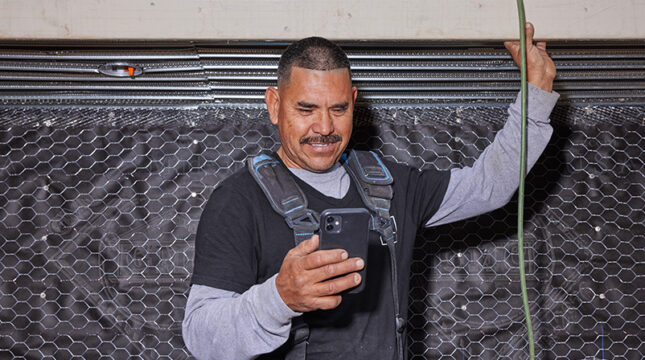1. More outsourcing of financial services
Mariana Alvarez, owner of Controller Works, an online bookkeeping and advisory firm, has noticed that more small business owners outsource financial support services because they don’t want to increase headcount.
“Outsourcing gives them the possibility of having access to the knowledge and the skills of a CFO without having to pay for the salary,” Alvarez says. “They don’t have to manage or deal with the workload, employment taxes and all that comes with it,” says Alvarez.
Additionally, many small business owners in fields like construction are family-owned, and this makes it easier for business owners to hand off delicate financial work to a trusted person with financial experience.
2. Automating bookkeeping tasks with AI
Every small business has recurring tasks that can benefit from some level of artificial intelligence automation. Alvarez sees a lot of value in using AI for small business bookkeeping.
She explains that you can automate the data entry on Quickbooks. “When you create rules, as long as you create the rules correctly, it pretty much does itself,” says Alvarez.
From there, you can lean on financial experts to help you analyze the data and make more informed decisions. She uses AI as a background resource when guiding her accounting clients.
“I believe that we still need the human-to-human interaction that comes with more perspective for financial analysis,” she explains.
3. Store-within-a-store (SWAS) retail
Chances are that you’ve seen a Starbucks in your local grocery, or fast food inside your gas station. 2024 saw this big business trend trickle down into small business shops who are seeing the benefits of a shop inside a shop, including convenience, brand introduction and increased partnership sales for all.
Imagine the concept of a holiday pop-up shop that lasts all year: Trendy food shops that feature independent vintage resellers. Pet trainer office hours inside the local pet supply shop. Or handcrafted jewelry with the artists and displays well-positioned inside swanky hair salons for waiting clients. SWAS is economical, interesting and on-trend for local retail and national retail alike.
4. AI-driven agents and customer service
77% of consumers feel that human interaction is still required for a positive customer experience, according to the SBA. People turn to small businesses every day for a human experience.
However, small business workers can show up for their customers but still use AI for routine tasks like customer queries. It’s a trend that gained more momentum in 2024.
“This balance allows companies to scale their operations without losing the personal touch that makes them unique,” says Arvind Rongala, CEO of Edstellar, an employee skill development company “It’s important to remember that AI isn’t there to replace the human element — it’s there to enhance it.”
5. Personalized customer experiences
On the other end of the spectrum, small business owners continued to find success in 2024 by relying on an old business fundamental — offering a personal experience that larger businesses just can’t compete with.
“By really focusing on one very small weakness that Amazon has, I’ve been able to carve out a successful business by offering something different,” says Lou Harvey owns Tank Retailer, a retailer of commercial water and fuel tanks. “When you read our customer reviews, many of them actually mention me by name because of how much we focus on customer service and go the extra mile.”
One of Harvey’s most successful business strategies this year has been to lean into his small, niche market and offer the kind of customer experience that large retailers like Amazon don’t.
“Any small weaknesses that Amazon has (however small those weaknesses may be) needs to become a strength of a smaller business focusing on a niche market,” Harvey says.
Harvey has his company’s customer service phone number front and center on the website to help earn customer trust.
“I prominently feature our phone number, and a real person always answers the phone. Usually it’s me),” says Harvey.
6. Businesses promoting social impact
Lucie Voves, CEO and founder of Church Hill Classics, an online, woman-owned diploma framing company that uses sustainable materials, has noticed an uptick in customers seeking services from mission-driven businesses.
“This year, we’ve seen a growing inclination for consumers to actively seek out and support small businesses owned by women and minorities,” Voves says.
When consumers shop small, they choose to make their dollars count. “Customers are fueled by a desire to promote social impact through purchasing power,” says Voves.
7. Increased social commerce sales
Small business owners have been turning toward influencers, social media ads and organic content to target their customers for a while now. And this year those efforts have finally started to pay out for their success.
In 2024, we’ve seen more small businesses than ever turn to social commerce to sell directly on social media platforms like Instagram, Facebook and TikTok. And this year, TikTok gained more social shoppers (11.6 million) than the net increase of Facebook, Instagram, and Pinterest combined, according to an EMARKETER forecast.
Mike Vannelli of Envy Creative creates online ads for businesses, and he has seen his clients succeed on TikTok of late.
“I’ve seen businesses, especially in retail, use TikTok’s short-form video format to make their products go viral. Think of it as word-of-mouth marketing on steroids,” Vannelli says.
He uses the platform’s algorithm to push a company’s content to the right audiences, and it works because TikTok loves storytelling.
“I know small brands that use behind-the-scenes videos, customer testimonials and even playful challenges that tap into trends to humanize their products and build trust,” Vannelli says.
To stand out on TikTok, he says, smaller brands need to embrace authenticity and emotional connection. Show your team, share your journey and involve your community in content creation.





